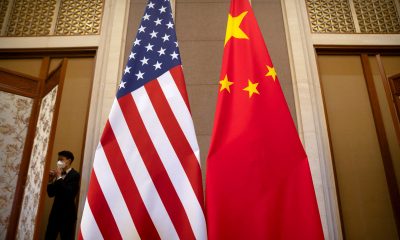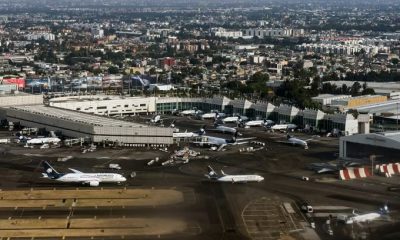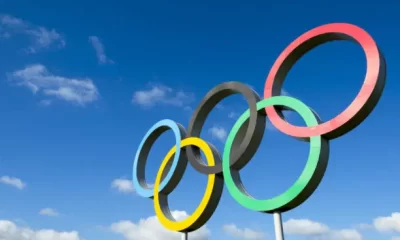News
US, China meet in bid to ‘de-escalate’ trade war
Senior US and Chinese officials were meeting in Geneva on Saturday in a bid to de-escalate a trade war sparked by President Donald Trump’s sweeping tariff roll-out and further fuelled by Beijing’s robust retaliation.
US Treasury Secretary Scott Bessent and US Trade Representative Jamieson Greer were conferring with Chinese Vice Premier He Lifeng in the first such talks between the world’s two largest economies since Trump slapped steep new levies on China last month.
The closed-door discussions began at mid-morning Saturday and were due to continue Sunday at the residence of the Swiss ambassador to the United Nations in Geneva.
And after a break at around lunchtime, the delegations returned to the discrete villa with sky blue shutters near a large parc on the left bank of Lake Geneva, according to AFP journalists on site.
Tariffs imposed by Trump on the Asian manufacturing giant since the start of the year currently total 145 percent, with cumulative US duties on some Chinese goods reaching a staggering 245 percent.
In retaliation, China slapped 125 percent levies on US goods, cementing what appears a near trade embargo between the world’s two largest economies.
Trump signalled on Friday that he might lower the sky-high tariffs on Chinese imports, taking to social media to suggest that an “80% Tariff on China seems right!”.
“The president would like to work it out with China…. He would like to de-escalate the situation,” US Commerce Secretary Howard Lutnick told Fox News on Friday.
Trump’s press secretary, Karoline Leavitt, clarified that the US would not lower tariffs unilaterally, adding that China would need to make concessions as well.
In any case, a move to that level would be a symbolic gesture, since the tariffs would remain prohibitively steep.
– ‘Not good’ relationship –
“The relationship is not good” between Washington and Beijing, noted Bill Reinsch, a senior advisor at the Center for Strategic and International Studies.
“We have trade-prohibitive tariffs going in both directions. Relations are deteriorating,” said Reinsch, a longtime former member of the American government’s US-China Economic and Security Review Commission.
“But the meeting is a good sign.”
“I think this is basically to show that both sides are talking — and that itself is very important,” said Xu Bin, professor of economics and finance at the China Europe International Business School.
“Because China is the only country that has tit-for-tat tariffs against Trump’s tariffs,” he told AFP.























